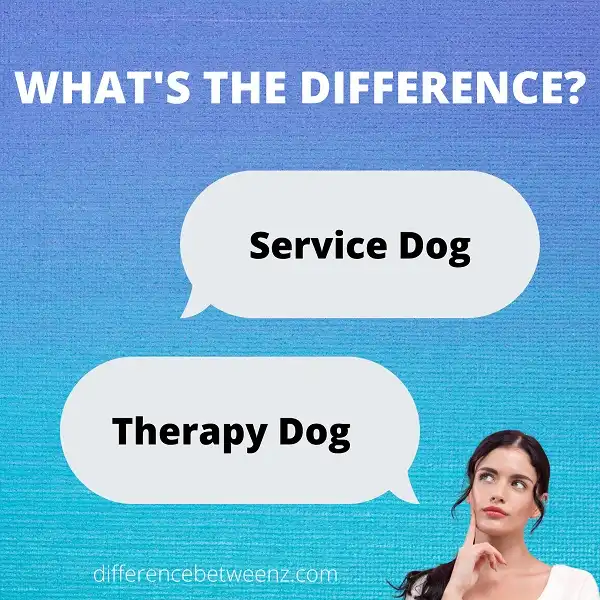For those unfamiliar with the role and responsibilities of assistance animals, it can be difficult to differentiate between a service dog and a therapy dog. Both provide invaluable comfort and support to their beloved owners but they perform different functions in different settings. Dive into this blog post to gain an understanding of when and how these two special pups offer their unmistakable love – as well as some extra benefits along the way!
What is a Service Dog?
- Service Dogs are highly skilled and specialized animals that are trained to assist people with disabilities in their daily lives. Service Dogs offer support and companionship, allowing those with disabilities more independence, improved health benefits, and more participation in everyday activities.
- Service Dogs must complete an extensive training program including six to nine months of professional instruction prior to becoming a Service Dog. Service Dogs have unique skills such as opening doors, alerting for sound and movement, providing balance assistance, or getting help when needed.
- Service Dogs also require close oversight throughout their working life since day-to-day attention on the dog’s medical needs, diet and behavior will ensure consistent performance and good health for the Service Dog and its partner. Service Dogs are essential to helping those with disabilities participate in daily activities without limitation or restrictions.
What is a Therapy Dog?
- Therapy Dogs are specially trained companions that provide comfort, support, and emotional healing to those in need. Therapy Dogs can offer stress relief by providing calming physical contact, allowing patients with mental health challenges or neurological problems to connect with the dog and improve their mood or outlook.
- Therapy Dogs visit hospitals, schools, nursing homes, disaster sites and anywhere specialized services are warranted. Therapy Dog teams of a human handler and the Therapy Dog bring joy to those who cannot be around their own pets or dogs due to their medical condition.
- Therapy Dog teams also volunteer for community activities such as reading programs for children, veteran facilities visits and many others. Therapy Dogs serve people in a voluntary capacity and provide unconditional love without judgment or expectation from those they serve.
Difference between a Service Dog and a Therapy Dog
Service Dogs and Therapy Dogs each play a unique role in providing people with necessary physical, medical, and emotional support. Service Dogs are highly trained to be used specifically by their handler to perform tasks that mitigate the disability of their handler.
- Service Dogs must adhere to public access regulations and they represent the rights of their handler to have equal access. Generally Service Dogs accompany one handler at a time, but can also be placed with multiple handlers if it is impossible for them to accompany one throughout the entirety of their day.
- On the other hand, Therapy Dogs do not need thorough training like Service Dogs and they do not provide direct assistance to an individual person. Instead these gentle dogs create calming environments in places such as schools or retirement homes where they bring comfort and joy to many rather than one individual handler.
- It’s amazing how Service Dogs and Therapy Dogs both provide comfort in different ways yet work towards mutual goals of bringing peace, love, and companionship amongst all!
Conclusion
A service dog is individually trained in a specific task or tasks to assist a person with a disability. A therapy dog is not individually trained and provides affection and comfort to people in hospitals, nursing homes, assisted living facilities, schools, hospices, disaster areas, and to anyone who could benefit from the cheerfulness of a wagging tail. The difference between these two types of dogs has important implications for both the handler and the public.


